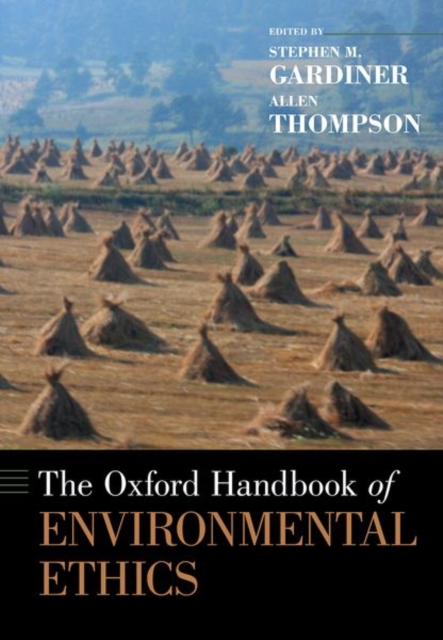
The Oxford Handbook of Environmental Ethics Paperback / softback
by Allen (Associate Professor, Associate Professor, Department of Philosophy, Oregon State Un Thompson
Edited by Stephen M. (Professor of Philosophy and Ben Rabinowitz Endowed Professor of Human Dimensio Gardiner
Part of the Oxford Handbooks series
Paperback / softback
Description
We live during a crucial period of human history on Earth.
Anthropogenic environmental changes are occurring on global scales at unprecedented rates.
Despite a long history of environmental intervention, never before has the collective impact of human behaviors threatened all of the major bio-systems on the planet.
Decisions we make today will have significant consequences for the basic conditions of all life into the indefinite future.
What should we do? How should we behave? In what ways ought we organize and respond? The future of the world as we know it depends on our actions today. A cutting-edge introduction to environmental ethics in a time of dramatic global environmental change, this collection contains forty-five newly commissioned articles, with contributions from well-established experts and emerging voices in the field.
Chapters are arranged in topical sections: social contexts (history, science, economics, law, and the Anthropocene), who or what is of value (humanity, conscious animals, living individuals, and wild nature), the nature of value (truth and goodness, practical reasons, hermeneutics, phenomenology, and aesthetics), how things ought to matter (consequences, duty and obligation, character traits, caring for others, and the sacred), essential concepts (responsibility, justice, gender, rights, ecological space, risk and precaution, citizenship, future generations, and sustainability), key issues (pollution, population, energy, food, water, mass extinction, technology, and ecosystem management), climate change (mitigation, adaptation, diplomacy, and geoengineering), and social change (conflict, pragmatism, sacrifice, and action).
Each chapter explains the role played by central theories, ideas, issues, and concepts in contemporary environmental ethics, and their relevance for the challenges of the future.
Information
-
Less than 10 available - usually despatched within 24 hours
- Format:Paperback / softback
- Pages:616 pages
- Publisher:Oxford University Press Inc
- Publication Date:31/01/2019
- Category:
- ISBN:9780190933388
Information
-
Less than 10 available - usually despatched within 24 hours
- Format:Paperback / softback
- Pages:616 pages
- Publisher:Oxford University Press Inc
- Publication Date:31/01/2019
- Category:
- ISBN:9780190933388










